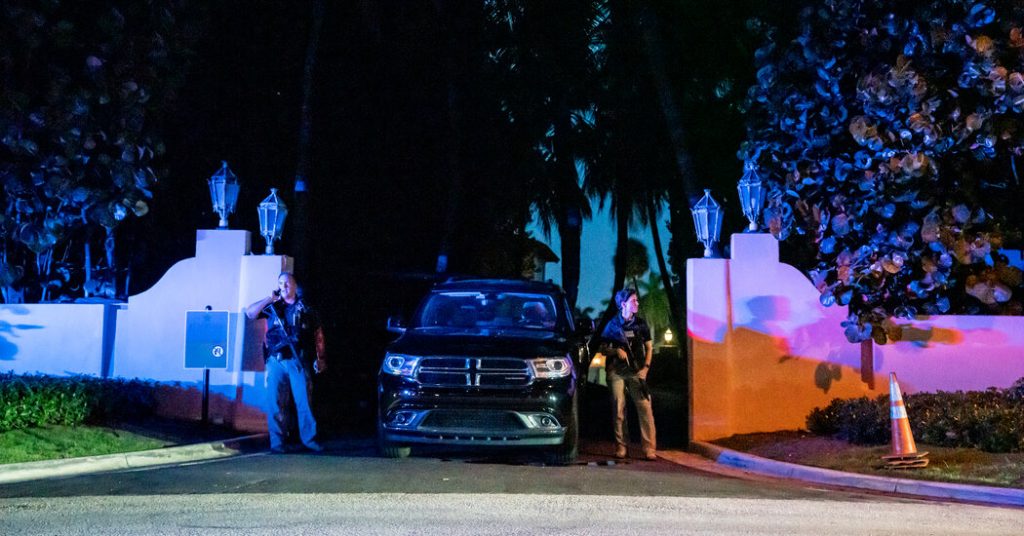For several months, there has been a secretive battle between federal prosecutors and lawyers for former President Donald J. Trump over allegations of misconduct and politicization in the investigation that led to an indictment accusing Mr. Trump of holding classified documents illegally after leaving office. This fight became public when Mr. Trump’s lawyers attacked the integrity of the inquiry and accused special counsel Jack Smith of timing his charges for maximum political damage. The filings by Trump’s lawyers targeted various investigative steps taken by the government that they claimed were improper.
Mr. Trump’s lawyers accused officials in the National Archives and the Biden administration of colluding to open a criminal investigation of the former president before finding classified materials in boxes received from Mr. Trump. They also alleged that federal prosecutors waited until June to file the indictment to disrupt Mr. Trump’s primary campaign and damage his chances in the general election. These claims were vehemently denied by Mr. Smith’s prosecutors, who defended themselves against allegations of misconduct and politicization, stating that the investigation had been approached in a measured and graduated manner.
In a motion filed by Mr. Trump’s lawyers, they asked the judge to exclude evidence, including over 100 classified documents discovered by the FBI during a search of Mar-a-Lago, and to suppress audio notes obtained from one of Mr. Trump’s lawyers. These notes were central to the government’s allegation that Mr. Trump obstructed efforts to reclaim classified materials from the White House. Prosecutors dismissed Mr. Trump’s accusations of collusion between the National Archives and the Biden administration as a conspiracy theory, based on a misinterpreted email.
The prosecutors refuted claims of delaying the indictment to give Mr. Biden a tactical advantage, asserting that the charges were solely based on facts and the law. They defended the search of Mar-a-Lago as necessary due to Mr. Trump’s possession of classified documents and deceptive practices to retain them. In response to Mr. Trump’s attempts to keep the jury from hearing the audio notes, prosecutors cited a federal judge’s decision to set aside attorney-client privilege under the crime-fraud exception.
The unsealed filings were initially submitted to Judge Cannon in February, but their release was delayed as names of witnesses and other sensitive information were redacted. It remains uncertain when Judge Cannon will rule on the motions from Mr. Trump’s team or schedule hearings. Many of Judge Cannon’s decisions have aligned with Mr. Trump’s strategy to postpone a trial until after the election in November. The filings are just one part of a series of motions launched by Mr. Trump’s lawyers to challenge the classified documents indictment, including questioning the legality of Mr. Smith’s appointment and claiming executive immunity for Mr. Trump.


